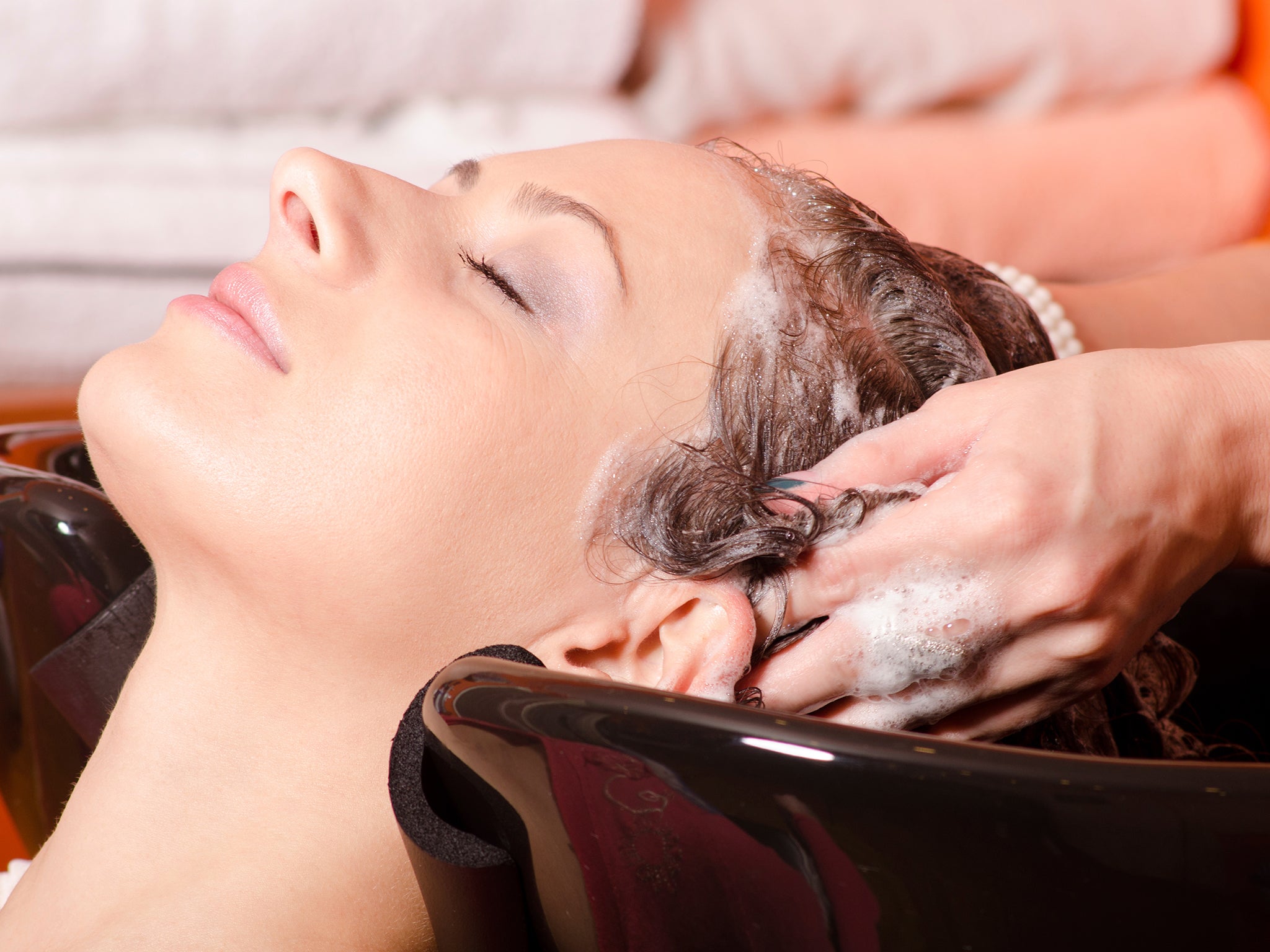Woman sues hair salon over claims 'huge stroke' was caused by head position in sink
Experts say there is a legitimate condition known as 'beauty parlour stroke syndrome'

Your support helps us to tell the story
From reproductive rights to climate change to Big Tech, The Independent is on the ground when the story is developing. Whether it's investigating the financials of Elon Musk's pro-Trump PAC or producing our latest documentary, 'The A Word', which shines a light on the American women fighting for reproductive rights, we know how important it is to parse out the facts from the messaging.
At such a critical moment in US history, we need reporters on the ground. Your donation allows us to keep sending journalists to speak to both sides of the story.
The Independent is trusted by Americans across the entire political spectrum. And unlike many other quality news outlets, we choose not to lock Americans out of our reporting and analysis with paywalls. We believe quality journalism should be available to everyone, paid for by those who can afford it.
Your support makes all the difference.A woman from California is suing a hairdresser after claiming that the position of her head in a wash basin caused her to have a stroke.
Elizabeth Smith, 48, reportedly visited a hair salon in San Diego in December 2013 and spent 10 minutes having her hair shampooed, 10news.com reports.
A week later she says she felt weakness in her left arm and leg, and suffered a "huge stroke" after another week.
She claims doctors told her it was the position of her head in a wash basin that was the probably underlying cause.
"I vomited, my head became hot and I couldn’t stand," she told 10news.com. “I had weakness in my arms and legs. They didn’t think I was going to live."
In an emotional interview with CBS, she said she wants to warn against the “potential danger” for other customers, and that she could die if she suffers another stroke.
Experts say there is a legitimate condition known as "beauty parlour stroke syndrome" which is “usually seen in younger people".
Peter Gloviczki, M.D., a vascular surgeon at the Mayo Clinic in Rochester, Minn., said beauty parlour stroke syndrome is caused when there is an "injury, tea or blood clot in one of the four major arteries that go to the brain.
"The main problem is hyperextension of the neck", he told Self magazine, "which can occur when you’re having your hair shampooed and staying in that position for a period of time."
Aneesh Singhal, M.D., associate professor of neurology at Harvard Medical School and vice chair of Neurology at Massachusetts General Hospital, told Self that this can also happen to people at the dentist, playing tennis, undergoing chiropractic neck manipulation, or even doing yoga.
Very little research has been published into beauty parlour syndrome, however a paper published in The Lancet in 1997 reports that “acute neck pain and dizziness are common symptoms after shampooing, suggesting vertebral basilar ischaemia or vertebral artery dissection”.
Doctors from the department of surgery at Shimura General Hospital in Mito, Japan, wrote that changing the shampoo routine from a hanging head hyperextension posture to a head flexed or “neutral” position may be more difficult for the beautician, but safer, and noted reports from the US of negligence actions brought by customers over allegations of improper positioning.
Alexis Wieroniey, deputy director for Policy and Influencing at the Stroke Association told The Independent: "A stroke can sometimes be caused if you tear the lining of an artery in your neck. In many cases, there is no clear reason behind this happening, but for some people it could be the result of an injury.
"There is a very small chance that an injury might be caused by extending your neck back in a chair to have your hair washed, but no definitive link has been established between hair washing and strokes.
"If you are worried about your stroke risk, the most important step you can take is to get your blood pressure checked. High blood pressure is the single biggest risk factor for stroke but it is treatable. It often presents no symptoms; so many people are unaware that they have it.”
Join our commenting forum
Join thought-provoking conversations, follow other Independent readers and see their replies
Comments